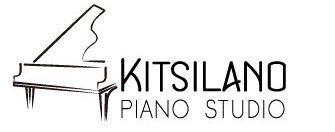It is often said that there is no age for learning, and the same applies when it comes to learning piano. Whenever you feel like you want to learn this amazing musical instrument, you can find a teacher and learn it. However, when it comes to your child wanting to learn the piano, you should wait until he/she turns at least 3 because then, your child will be able to take music lessons carefully.
Musical awakening lessons allow children to discover the world of music: rhythm, sounds, sensitizing the ear through playful ways to instill the pleasure of playing.
To start playing the piano, it is from this pleasure that the child’s future motivation to play music is born. To encourage your child, it is important to congratulate him regularly, to find a listening teacher, and to adopt a beginner’s piano method adapted to the first ages of life.
Though 3 might be the earliest age to start, it is at 7 years that the child has the strongest neural plasticity: the child’s brain is a sponge and he integrates new things much faster than adults.
So push your child towards piano lessons from primary school. It is around 6-7 years that music theory lessons can really be done and that your little one structures his/her game and where he can follow real piano lessons. Beyond, at the adolescent age, the piano lessons are sometimes neglected in favor of the guitar, maybe because it appears less “elitist” and more “cool.”
However, this meaning concerns the pop-rock guitar and not gypsy jazz, flamenco or classical, styles very technical and difficult to approach.
Make your son/daughter understand that the piano is a very complete instrument that allows you to play most musical styles and to understand all the music theory needed to play other instruments such as guitar and what is involved.
Remember that while many composers and great pianists started playing the piano at a young age, others learned the piano very late in adulthood.
Arguments of stiffening fingers, lack of time to take piano lessons, or adult incompetence for the piano appears to be false excuses masking a lack of motivation.
In fact, adults are mentally constructed, and their muscles are more developed than children. Also, your child is supposed to have more musical culture than a 5-year-old. And also, more money to pay for piano lessons.
Learning the piano for beginners, even over 40 or 50, can be a factor in delaying possible cognitive pathologies such as Alzheimer’s disease: the brain is a muscle, nothing is immutable and even a retired senior can learn to play whatever he wants.
It will be better if a middle-aged person gets the piano lessons with his/her child because it will motivate him/her. It is not that difficult to find a piano teacher these days. Finding a good one is more difficult. Consult Kitsilano Piano Studio to find your perfect piano teacher fit.
